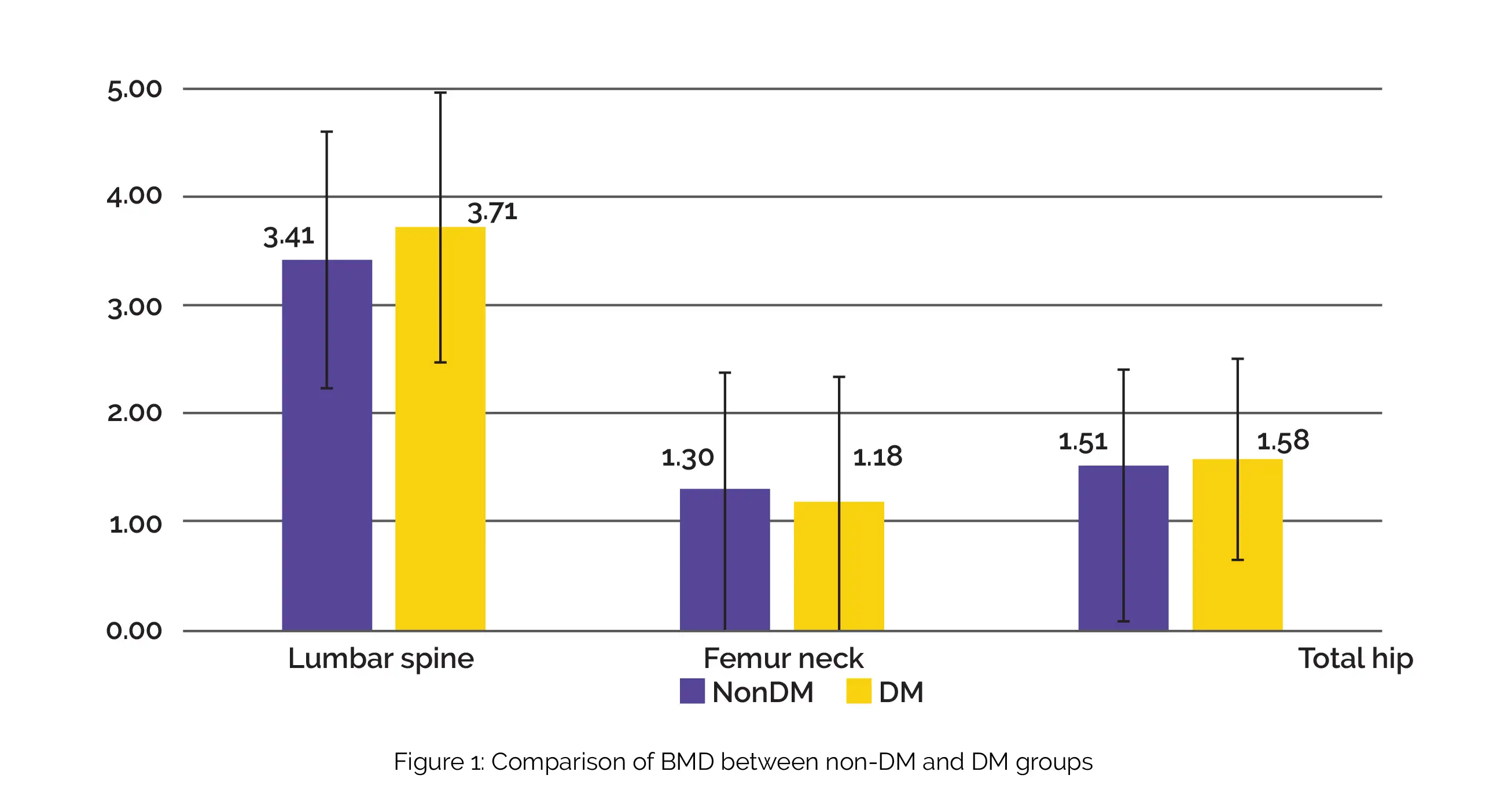Categories
Change Password!
Reset Password!


A prospective multicenter trial aimed to explore the effectiveness of monthly oral ibandronate to retain bone mineral density (BMD) in postmenopausal osteoporotic females without and with diabetes.
In non-diabetic and diabetic postmenopausal women suffering from osteoporosis, bisphosphonate therapy displayed a comparable rise in bone mineral density and reduction in bone turnover markers.
A prospective multicenter trial aimed to explore the effectiveness of monthly oral ibandronate to retain bone mineral density (BMD) in postmenopausal osteoporotic females without and with diabetes.
Postmenopausal women suffering from osteoporosis with or without diabetes were recruited and segregated into non-diabetes mellitus (Non-DM) group and diabetes mellitus (DM) group. Both the groups were administered 150 mg ibandronate orally once a month for a year. Assessment of trabecular bone score, procollagen type 1 N-terminal propeptide (P1NP), BMD, and serum C-terminal telopeptide of type I collagen (CTx) was done. Treatment-emergent side effects and alteration in glucose metabolism during the use of drug were monitored.
Following one year of intervention, the BMD got elevated in all the groups, as depicted in Figure 1.

No profound differences in BMD changes were reported between both groups. The inter-group differences in CTx or P1NP alteration were not noteworthy. No profound differences were reported in baseline trabecular bone score values or degree of alteration between before and after one year of bisphosphonate intervention in either of the arms.
In 120 subjects, 11 side effects ensued that got recovered with no sequelae. Regarding the frequency of side effects, no substantial inter-group difference was witnessed. In the DM group, the alterations in glycated hemoglobin and fasting glucose levels between before and after intervention were not significant.
In postmenopausal osteoporotic women suffering from type 2 diabetes, monthly oral administration of ibandronate can be an efficient and safe therapeutic option.
BMC Endocrine Disorders
Efficacy of bisphosphonate therapy on postmenopausal osteoporotic women with and without diabetes: a prospective trial
Jinyoung Kim et al.
Comments (0)